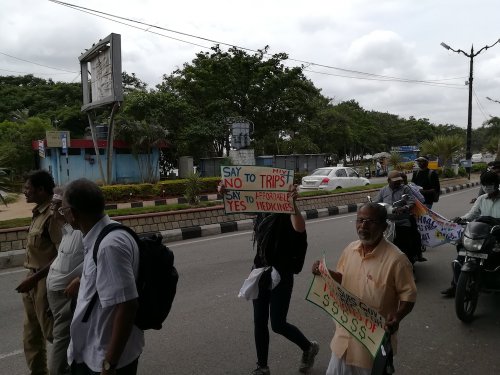Why TRIPS-plus IPR enforcement is bad: Lessons of KORUS for RCEP
by Heesob Nam
One of the main purposes of the US in bilateral negotiation is to level up the enforcement of IPRs, especially enhanced enforcement provisions that the US sought but failed in achieving at the TRIPS negotiation. During the KORUS talks, the Korean negotiators were more or less sympathetic to the US’ TRIPS-plus proposals on IPR enforcement. The bottom line of the Korean negotiators was to keep any ensued domestic legislative changes to a minimum. This was to avoid possible political debates at the approval process within the National Assembly and to prevent potential complaints or trade sanctions from the US.
The outcomes of such negotiation are problematical in three aspects. First, the enforcement section of KORUS unduly narrows state’s discretion than TRIPS. As the WTO panel observes in China – Intellectual Property Rights case,[1] TRIPS allows more discretion in enforcement (Part III of TRIPS) than protection of IPRs (Part II of TRIPS).[2] However, KORUS removes these discretional flexibilities. Second, it conflicts with the fundamental principles of due process and procedural justice, undermining national obligation to protect human rights, especially everyone’s right to fair trial, which is enshrined in the international human rights institutions.[3] Everyone’s right to fair trial is a key element of human rights to safeguard the rule of law. Finally, KORUS institutionalizes unfair and inequitable procedures between IP holders and alleged infringers, which can be called an ‘IP exceptionalism’ instead of rule of law. It provides too much privileges in judicial proceedings for the benefits of IP holders, and produces inequality between parties, unequal opportunities of either party to contest, and an unfair distribution of the burden of proof. Typical example is a presumption obligation.
Article 18.10:3 of KORUS mandates statutory presumption on authorship and subsistence of copyright, and validity of registered patent and trademark rights. This strong presumption in favour of right holders shifts the burden of proof to alleged infringers, which should be applied to criminal proceedings not only civil and administrative proceedings.[4] Presumption in criminal proceeding may bring a conflict with the presumption of innocence, the fundamental principle under which the prosecutors have to show every element of crime and establish that the allegedly infringing activity does not fall into the “circumstance precluding wrongfulness”. By shifting this burden, the alleged infringer has to prove his innocence.
In the words of Flynn et al, the IP-exceptionalism enforcement rules implicate “due process and procedural protections against unwarranted deprivation of liberty and property and may deter lawful competition and expression”.[5]
On the implementation level, it is noteworthy to point out that both the US and Korean domestic laws do not fully implement the presumption obligation. In the US, there exists neither presumption of authorship for “the person whose name is indicated as the author, producer, performer, or publisher of the work, performance, or phonogram in the usual manner”, nor presumption of the subsistence of copyright in the work. In Korea, only the authorship is presumed and validity of registered patent and trademark is not presumed. Instead, the Korean Patent Act presumes the negligence of alleged infringer, which is not obligated under KORUS.
[1] China – Measures affecting the protection and enforcement of intellectual property rights (China – Intellectual Property), Panel Report (adopted 20 March 2009) WT/DS362/R.
[2] Yamane, H. (2011). Interpreting TRIPS: globalisation of intellectual property rights and access to medicines. Bloomsbury Publishing, p. 419.
[3] Article 10 of UDHR.
[4] By contrast, the Korea-Canada FTA mandates the presumption of authorship and subsistence of right only in civil proceeding involving copyright and related rights (Article 16.13:5).
[5] Flynn, S. M., Baker, B. K., Kaminski, M. E., & Koo, J. (2013). The US proposal for an intellectual property chapter in the Trans-Pacific Partnership Agreement, American University International Law Review, 28(1). 105-202., p. 184
